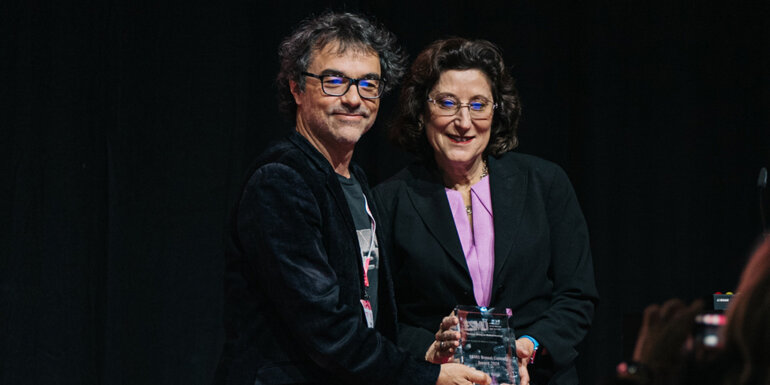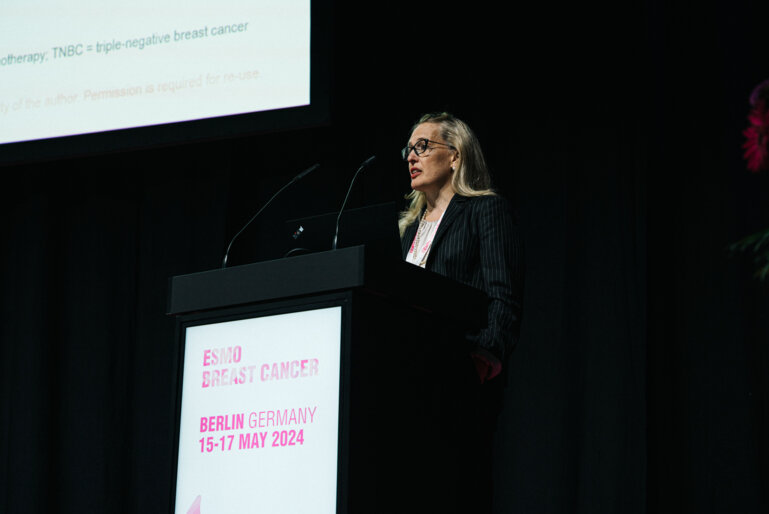ESMO Breast Cancer 2024

Atezolizumab plus sacituzumab govitecan show encouraging activity in inoperable triple-negative breast cancer
Efficacy and safety of the first-line novel combination were assessed in patients with untreated PD-L1 positive locally advanced or metastatic tumours

Triplet therapy shows promise in patients with ER positive/HER2 negative metastatic breast cancer
A synergic effect of olaparib, durvalumab and fulvestrant was observed across different mutated subgroups, with higher benefits in BRCA 1 and 2 carriers

Novel scenarios in targeting HR-positive/HER2-negative breast cancer
Studies provide evidence of potential efficacy for a novel CDK4-selective inhibitor and long-lasting benefits for a pan-AKT inhibitor

Sexual health in breast cancer: updated data from pharmacological and non-pharmacological interventions
Two studies provide new insights on the effects of vaginal oestrogen therapy and physical exercise to tackle sexual impairment

Pregnancy after breast cancer: study provides reassurance to BRCA carriers undergoing assisted reproductive techniques
No difference in risk recurrence or pregnancy outcomes was reported between young women with BRCA1 or BRCA2 mutations conceiving naturally and those using fertility treatments

Good tolerability of datopotamab deruxtecan supports its place in the treatment of HR+/HER2− breast cancer
In the TROPION-Breast01 trial, adverse events of special interest were generally low grade, easily managed and did not compromise scheduled treatment

Breast cancer research: lessons learnt from the past will shape the future
In her key lecture, the 2024 ESMO Breast Cancer Awardee Prof. Hope S. Rugo reflects on the current challenges in the field

Atezolizumab does not improve prognosis in early relapsing advanced triple-negative breast cancer
However, a higher objective response rate with atezolizumab was reported in the IMpassion132 trial suggesting that at least some patients could benefit from it

New insights into the evolutionary pattern of breast cancer
A more detailed picture of breast cancer establishment may facilitate prevention and detection in women at high risk

Making personalised precision medicine a reality for early breast cancer
Individualised assessment of initial response to therapy may pave the way for chemotherapy-sparing treatment, but it requires that multidisciplinary teams adapt their current practices


